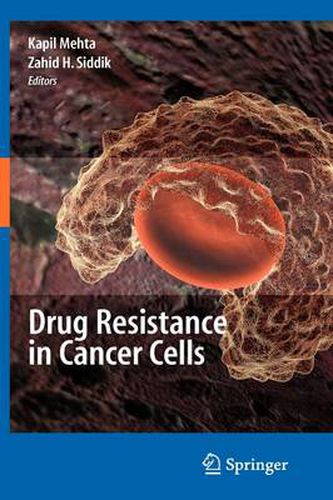Readings Newsletter
Become a Readings Member to make your shopping experience even easier.
Sign in or sign up for free!
You’re not far away from qualifying for FREE standard shipping within Australia
You’ve qualified for FREE standard shipping within Australia
The cart is loading…






This title is printed to order. This book may have been self-published. If so, we cannot guarantee the quality of the content. In the main most books will have gone through the editing process however some may not. We therefore suggest that you be aware of this before ordering this book. If in doubt check either the author or publisher’s details as we are unable to accept any returns unless they are faulty. Please contact us if you have any questions.
It was estimated that in 2008, 1,437,180 patients would receive a new cancer diagnosisand 565,650individualswould die of cancer (Jemal et al. 2008).Since the vast majority of patients dying of cancer will have had anticancer therapy, both c- ventional chemotherapy and novel targeted therapy, it can be concluded that these patients are dying with drug resistant cancer. The term multidrug resistance is also apt - in that these patients die after having undergone multiple rounds of different and structurally unrelated cancer therapies. However, for some, the concept of m- tidrug resistance is a worn out idea, stemming from disappointment with the drug resistancereversalstrategiesthatwerecarriedoutinthe1990susingpumpinhibitors to block drug resistance mediated by P-glycoprotein, product of the MDR-1 gene. However, if one takes the larger de?nition - multidrug resistance as simultaneous resistance to multiple structurally unrelated anticancer therapies - its existence c- not be denied. The purpose of this book is to explore new concepts related to drug resistance in cancer, including resistance to the new molecularly targeted agents. Perhaps new terminology is needed for resistance that occurs following therapy with the targeted agents: Novel Targeted Agent Resistance (NTR). Alternatively, we can return to the original de?nition of multidrug resistance as simply the res- tance to multipleagents that occurs in the course of normalcancer progression.This resistance is likely to be mediated by many factors.
$9.00 standard shipping within Australia
FREE standard shipping within Australia for orders over $100.00
Express & International shipping calculated at checkout
This title is printed to order. This book may have been self-published. If so, we cannot guarantee the quality of the content. In the main most books will have gone through the editing process however some may not. We therefore suggest that you be aware of this before ordering this book. If in doubt check either the author or publisher’s details as we are unable to accept any returns unless they are faulty. Please contact us if you have any questions.
It was estimated that in 2008, 1,437,180 patients would receive a new cancer diagnosisand 565,650individualswould die of cancer (Jemal et al. 2008).Since the vast majority of patients dying of cancer will have had anticancer therapy, both c- ventional chemotherapy and novel targeted therapy, it can be concluded that these patients are dying with drug resistant cancer. The term multidrug resistance is also apt - in that these patients die after having undergone multiple rounds of different and structurally unrelated cancer therapies. However, for some, the concept of m- tidrug resistance is a worn out idea, stemming from disappointment with the drug resistancereversalstrategiesthatwerecarriedoutinthe1990susingpumpinhibitors to block drug resistance mediated by P-glycoprotein, product of the MDR-1 gene. However, if one takes the larger de?nition - multidrug resistance as simultaneous resistance to multiple structurally unrelated anticancer therapies - its existence c- not be denied. The purpose of this book is to explore new concepts related to drug resistance in cancer, including resistance to the new molecularly targeted agents. Perhaps new terminology is needed for resistance that occurs following therapy with the targeted agents: Novel Targeted Agent Resistance (NTR). Alternatively, we can return to the original de?nition of multidrug resistance as simply the res- tance to multipleagents that occurs in the course of normalcancer progression.This resistance is likely to be mediated by many factors.